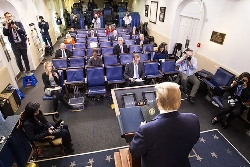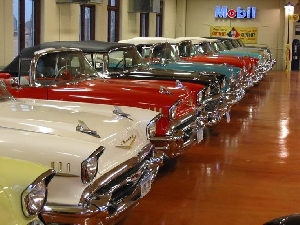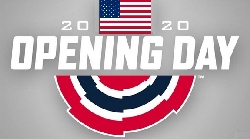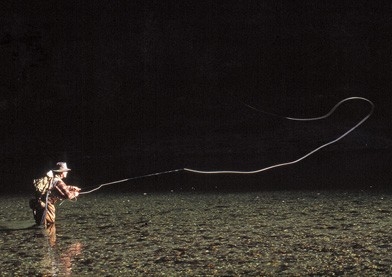- Are we too class conscious?
Click for AUDIO VERSION.
To use this segment in a Radio broadcast or Podcast, send TIM a request.
 I had a friend who used to be very class conscious when it came to work. He wouldn't socialize with other people he deemed below him and was very choosy when it came to where he lived. If the wrong class of workers were in the neighborhood, he wouldn't visit the area (let alone move into it). It had nothing to do with race or religion, only the types of jobs people had. In his mind, there was a clear delineation between people based strictly on their livelihood; e.g., blue collar labor, technical people, middle management, professional people, and executives. I guess we are all a little class conscious about how people make a living, a kind of one-upmanship, but I never saw it quite this vividly before.
I had a friend who used to be very class conscious when it came to work. He wouldn't socialize with other people he deemed below him and was very choosy when it came to where he lived. If the wrong class of workers were in the neighborhood, he wouldn't visit the area (let alone move into it). It had nothing to do with race or religion, only the types of jobs people had. In his mind, there was a clear delineation between people based strictly on their livelihood; e.g., blue collar labor, technical people, middle management, professional people, and executives. I guess we are all a little class conscious about how people make a living, a kind of one-upmanship, but I never saw it quite this vividly before.
This bothered me because I believe in the dignity and honor of any job, regardless how mundane it may seem. This caused me to do some soul-searching as to why I felt this way and I suppose it is because I am acutely aware of my family's history; e.g., how we came to this country from Scotland, which certainly wasn't in a luxury liner, how we struggled to get a foothold here, how we survived the Great Depression, and how we prospered following World War II.
Like many of you, I can recall the menial jobs both my grandfather and father performed to help the family survive. Interestingly, they never complained about it but, rather, always spoke with pride of how well they did their jobs. For instance, my grandfather used to be employed by the Wickwire Steel Company in Buffalo, New York where he ran a machine to make the rebar mesh used in such things as concrete sidewalks. It was certainly not a glamorous job. In fact, it was rather difficult as the machines would frequently break down. Instead of waiting for the machine to be fixed by someone else, as his union wanted him to do, he learned how to fix the machine himself. He figured he couldn't get paid if the machine was idle, so he devoted his own personal time to learn as much about it as he could. His knowledge of the machines grew to the point where he eventually became the head of maintenance. Whereas he could have done nothing, instead he elected to take a proactive approach.
To my grandfather's way of thinking, his job was no better or worse than anyone else's. He was just thankful he had one and did it to the best of his ability. This taught me you should not look down your nose at anyone for the job they have, but rather how well they perform it. I have much more respect for the common uneducated laborer who knows what he is doing as opposed to a well educated professional who is a derelict.
It is fundamental to the human spirit that we all believe we are leading a worthy and honorable life. Since work is an inherent part of our life, how meaningful our job is depends on what we make of it. If we take a defeatist attitude and treat it as a triviality, we will suffer from low self-esteem and become jealous of others. However, if we adopt a professional attitude towards our job, regardless of its magnitude, we will have a more positive sense of self worth.
With this said, I don't understand the obsession a lot of High School Guidance Counselors have in pushing students towards a college education. Not everyone is predisposed to attending college, some are better served by going into a trade school or the military. Yet, many guidance counselors pooh-pooh such institutions thereby creating a snobbish attitude towards them. Believe me, there is nothing dishonorable about learning mechanics, auto repair, plumbing, carpentry, or serving in the military. Imagine where we would be without such professions.
One of the main reasons I have enjoyed my time in the Masons is that we are taught regardless of your station in life, everyone serves on the level. In other words, everyone has an equal say regardless of who they are, thereby taking ego out of the formula and creating a sense of cooperation.
I do not know how well we are passing this lesson of work dignity to our young people, but I fear we are creating a generation of people who are more class conscious than the last, and never satisfied with the job they have, regardless what it is. From a psychological point of view, this should have profound long term effects on our productivity and our culture.
Keep the Faith!
P.S. - Also, I have a NEW book, "Before You Vote: Know How Your Government Works", What American youth should know about government, available in Printed, PDF and eBook form. DON'T FORGET GRADUATION DAY. This is the perfect gift!
Note: All trademarks both marked and unmarked belong to their respective companies.
 Tim Bryce is an author, freelance writer and the Managing Director of M&JB Investment Company (M&JB) of Palm Harbor, Florida and has over 40 years of experience in the management consulting field. He can be reached at timb1557@gmail.com
Tim Bryce is an author, freelance writer and the Managing Director of M&JB Investment Company (M&JB) of Palm Harbor, Florida and has over 40 years of experience in the management consulting field. He can be reached at timb1557@gmail.com
For Tim's columns, see: timbryce.com
Like the article? TELL A FRIEND.
Copyright © 2020 by Tim Bryce. All rights reserved.
Listen to Tim on WZIG-FM (104.1) in Palm Harbor,FL; Or tune-in to Tim's channel on YouTube. Click for TIM'S LIBRARY OF AUDIO CLIPS.
 We began hearing of problems with the media covering the presidential coronavirus briefings in late March when
We began hearing of problems with the media covering the presidential coronavirus briefings in late March when  I have always found the relationship between humans and their automobiles interesting. I contend what we drive greatly impacts how we drive. To illustrate, I believe there are basically three distinctively different classes of people who drive: those who just want a basic form of transportation, those who use it as a status symbol, and those who have a love affair with their vehicle, a sort of connoisseur. Each group sees the automobile differently and, as such, treats it differently.
I have always found the relationship between humans and their automobiles interesting. I contend what we drive greatly impacts how we drive. To illustrate, I believe there are basically three distinctively different classes of people who drive: those who just want a basic form of transportation, those who use it as a status symbol, and those who have a love affair with their vehicle, a sort of connoisseur. Each group sees the automobile differently and, as such, treats it differently. The following is a true story; a vintage "Dilbertism." Because of this, the names have been changed to protect the innocent (as well as the guilty). Interestingly, I do not believe this story to be unique and similar stories can be found in countless IT shops around the world.
The following is a true story; a vintage "Dilbertism." Because of this, the names have been changed to protect the innocent (as well as the guilty). Interestingly, I do not believe this story to be unique and similar stories can be found in countless IT shops around the world. Good question. After two months, a lot of people are itching to lose the masks and gloves, return to work, and get their lives back to normal. Believe it or not, others want to see the country stay in paralysis until the election making it a sore political subject. We obviously cannot do the latter as the United States would become a burned out shell by then. The question though is when to re-open the country, and that will be the toughest question President Trump will face as he knows the clock is ticking on our ability to recover from this mess.
Good question. After two months, a lot of people are itching to lose the masks and gloves, return to work, and get their lives back to normal. Believe it or not, others want to see the country stay in paralysis until the election making it a sore political subject. We obviously cannot do the latter as the United States would become a burned out shell by then. The question though is when to re-open the country, and that will be the toughest question President Trump will face as he knows the clock is ticking on our ability to recover from this mess. A good friend of mine passed away last year, I'll just call him "Warren" for the purpose of this essay. He was a good friend and had a great sense of humor. He also had an interesting career which, among other things, he served a stint as a New York State trooper several years ago. One day we took a road trip heading north on I-75, I was driving. We talked about a lot of things, as is common on such trips, but he began to describe some of his escapades as a trooper, such as some of the whacko speeders he had ticketed or arrested over the years. It was all interesting, but he had one story which really caught me off guard...
A good friend of mine passed away last year, I'll just call him "Warren" for the purpose of this essay. He was a good friend and had a great sense of humor. He also had an interesting career which, among other things, he served a stint as a New York State trooper several years ago. One day we took a road trip heading north on I-75, I was driving. We talked about a lot of things, as is common on such trips, but he began to describe some of his escapades as a trooper, such as some of the whacko speeders he had ticketed or arrested over the years. It was all interesting, but he had one story which really caught me off guard... Panics are a fascinating subject, particularly from a management perspective. They are usually caused by some catastrophe, be it man-made or an act of God. We can make some preparations for disaster, but they do not normally accommodate all situations. This means we are forced to react to a panic, such as a cattle stampede triggered by a bolt of lightning. Instead of being proactive, we then must rely on our leaders to take the reigns to restore order and correct the problem.
Panics are a fascinating subject, particularly from a management perspective. They are usually caused by some catastrophe, be it man-made or an act of God. We can make some preparations for disaster, but they do not normally accommodate all situations. This means we are forced to react to a panic, such as a cattle stampede triggered by a bolt of lightning. Instead of being proactive, we then must rely on our leaders to take the reigns to restore order and correct the problem.  Most of the problems of the world can be solved with just a little fly fishing. Although I have fished most of my life in different locales, I took up fly fishing about twenty years ago. One of the first things I learned was that casting a fly rod was unlike any other rod and reel I had ever used. It wasn't a matter of sheer strength but rather a lot of finesse. The rhythmic casting between ten o'clock and two o'clock in a constant manner represents a harmony between rod, reel, line, fly and fisherman. Consequently, there is a certain amount of grace and serenity in fly-fishing. Watching a fly fisherman who knows what he is doing is truly a work of art which is why they constantly cultivate their skills in search of perfection.
Most of the problems of the world can be solved with just a little fly fishing. Although I have fished most of my life in different locales, I took up fly fishing about twenty years ago. One of the first things I learned was that casting a fly rod was unlike any other rod and reel I had ever used. It wasn't a matter of sheer strength but rather a lot of finesse. The rhythmic casting between ten o'clock and two o'clock in a constant manner represents a harmony between rod, reel, line, fly and fisherman. Consequently, there is a certain amount of grace and serenity in fly-fishing. Watching a fly fisherman who knows what he is doing is truly a work of art which is why they constantly cultivate their skills in search of perfection. I have found the social changes resulting from the coronavirus (COVID-19) to be fascinating. Most people appear to be staying home, minding their own business, and avoiding human contact either by choice or forced to do so by government regulations. As evidence, there is a groundswell in home improvement projects (just ask the hardware super stores whose profits are soaring). Other people are learning new cooking recipes, surfing the Internet, playing computer games, and watching a ton of television. My brother-in-law tackled a thousand piece jigsaw puzzle while sipping on some rather fine bourbon, and others are getting caught up on their reading. There are even fewer cars on the road, at least down here in Florida. Life has definitely changed since the panic began and the social ramifications are eye-opening.
I have found the social changes resulting from the coronavirus (COVID-19) to be fascinating. Most people appear to be staying home, minding their own business, and avoiding human contact either by choice or forced to do so by government regulations. As evidence, there is a groundswell in home improvement projects (just ask the hardware super stores whose profits are soaring). Other people are learning new cooking recipes, surfing the Internet, playing computer games, and watching a ton of television. My brother-in-law tackled a thousand piece jigsaw puzzle while sipping on some rather fine bourbon, and others are getting caught up on their reading. There are even fewer cars on the road, at least down here in Florida. Life has definitely changed since the panic began and the social ramifications are eye-opening. In case you have forgotten, we are still embroiled in a national election, and the Democrats have yet to officially select their candidate to run against President Trump. Three more primaries are in the offing with Alaska and Hawaii on April 4th, and Wisconsin on April 7th. Due to the coronavirus, in-person voting has been cancelled in Alaska, and mail-in voting has been extended until April 10th. As of this writing, Hawaii and Wisconsin will proceed as planned. Following this, several more primaries are planned throughout April, May and June, with the Democrat convention scheduled for July 13-16, in Milwaukee.
In case you have forgotten, we are still embroiled in a national election, and the Democrats have yet to officially select their candidate to run against President Trump. Three more primaries are in the offing with Alaska and Hawaii on April 4th, and Wisconsin on April 7th. Due to the coronavirus, in-person voting has been cancelled in Alaska, and mail-in voting has been extended until April 10th. As of this writing, Hawaii and Wisconsin will proceed as planned. Following this, several more primaries are planned throughout April, May and June, with the Democrat convention scheduled for July 13-16, in Milwaukee.